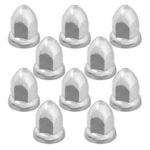With the kind of job and routine truck drivers have, staying in shape and healthy is quite difficult to do. It requires planning and determination to stay in shape. It also takes reassessing bad habits and changing them into good ones. It can be hard in the beginning, but things will be worth it when you feel better because you feel healthier.
A study conducted in 2007 in the Journal of the American Dietetic Association recognized that 86 percent of an estimated 3.2 million truck drivers in the U.S. are either overweight or obese.
Learning how to stay healthy as a truck driver means adjusting your lifestyle to meet the demands of the job.
The three components that are critical to your health as a professional driver are; diet, exercise, and sleep.
Diet
One of the primary reasons why truck drivers suffer from obesity and heart problems is the fact that they are forced to eat oily foods cooked in restaurants. It is not possible to pack your food when you are going to stay away for more than fifty hours a week driving your truck. It can be tough to find healthy food options when the highways are littered with diners and fast food joints. The first major thing is to avoid fried foods. French fries, donuts, cheese sticks, and fried chicken are all delicious, but terrible for your waistline.
Truck stops do not offer healthy choices to those stopping off of the road, but instead provide quick meals that are usually very low in nutritional value. Because of this, a dangerously high percentage of drivers are overweight. Being overweight can cause heart-related diseases, such as a heart attack, and can also cause dysfunctions such as sleep apnea, which can be detrimental to themselves, and other drivers on the road.
Long hours driving behind the wheel, juggling work cycles, and being away from home are all reasons why professional drivers in America make wrong food choices. The good news is you can work towards being a healthier you by using a few tactics. After all, you don’t want to be among the category of drivers that are dealing with health problems such as heart disease, obesity, or diabetes. Also, everyone in the supply chain from shippers to freight brokers want their drivers to stay healthy so they can deliver the load quickly and problem-free.
D o not eat, or limit the amount you eat of these foods:
o not eat, or limit the amount you eat of these foods:
- Foods high in fat content
- Fried foods
- Fish sticks and fried chicken that is breaded
- Sauces and dressings on sandwiches
- Salty foods such as salted almonds
- Snacks and Chips.
Eat the following foods to stay healthy:
- Roasted or baked meats
- Skinless chicken
- Non-fat or low-fat spreads
- Yogurt, apple, banana, fruit juice
- Store snacks such as grapes, raisins, carrots, and oranges inside your cooler
- Make it a goal to eat one meal per day at a salad bar
- Low-fat milk and tea (green, white, etc.)
Exercise
Drivers have to find every way and every chance to exercise. One can with engaging in short or longer walks during break time. Park farther than you usually do when you go to eat or shower. Instead of getting lazy and staying inside the truck on your break, you should get out of the truck and stretch.
Drivers have to find every way and every chance to exercise. One can engage in short or long walks during break time. Park farther than you usually do when you go to eat or shower. Instead of getting lazy and staying inside the truck on your break, you should get out of the truck and stretch. On off days you should try to schedule some time for the gym.
 A big problem in the life of a trucker is the constant stress of being on the road. Making a delivery on time is hard enough, but having to do it while dealing with what, at times, can seem like mile after mile of careless drivers can make it even more frustrating. The best way to relieve stress is to exercise. Although it’s a little difficult to exercise inside of your cab, there are easy exercises you can do whenever you make it to your next rest stop.
A big problem in the life of a trucker is the constant stress of being on the road. Making a delivery on time is hard enough, but having to do it while dealing with what, at times, can seem like mile after mile of careless drivers can make it even more frustrating. The best way to relieve stress is to exercise. Although it’s a little difficult to exercise inside of your cab, there are easy exercises you can do whenever you make it to your next rest stop.
Squats and lunges are easy to do in small spaces as are jogging in place and jumping rope. Some truckers even use filled up water bottles in their cab to do curls while sitting in traffic. Another way to relieve stress is to listen to music. While you’re listening, roll up your windows and sing or whistle along, it’s a great stress reliever.
Make a plan to go on walks that last 30-minutes or more. This can be anything from walking around a store like Walmart to finding a walking trail. If you can do this three to five times a week, you’ll experience results like increased energy, and lower stress.
In many instances, truck drivers would jump down from the truck. With your body stiff from the long drive, you are more susceptible to knee and back injuries. It would, therefore, be advisable to do it slowly and that you wear good quality shoes or boots so that you will have more support from the impact of jumping.
Being a professional driver can become very stressful at times. As a driver, you should have knowledge of job stress and ways to minimize it.
Build a balance between work and family/personal time. If you are working long hours, then you may want to keep in touch with friends and family through Facebook, Skype, or regular phone calls.
Rest and Sleep
Driver fatigue is a leading safety issue that is of great concern to the transportation industry. Many big rigs are at work during the night and truck drivers often have irregular and unpredictable schedules. The majority of the miles they drive is consumed on interstate lanes.
Getting enough sleep means you are protecting yourself from being diagnosed with sleep apnea.
 One of the most important rules in living a healthy lifestyle on the road is to get a plenty of sleep. It can be challenging when you’re either sleeping in your cab or at a motel, but the quality of sleep you get at night can play a significant role in your work performance and overall sense of well-being.
One of the most important rules in living a healthy lifestyle on the road is to get a plenty of sleep. It can be challenging when you’re either sleeping in your cab or at a motel, but the quality of sleep you get at night can play a significant role in your work performance and overall sense of well-being.
A lack of or interrupted sleep schedule can result in irritability, blurred vision, decreased reaction time, heartburn, diarrhea, and depression. And nobody had to tell you when you were in trucking training school that these issues could actually turn what might be a good day on the road into a day of drowsiness.
If you drink alcohol or consume drugs before bedtime, you should know that even one drink can prevent your body from reaching the deepest of sleep stages when you go to bed at night. And, of course, no one wants to go to work fostering a hangover.
With such an important duty, anyone would assume that it would be critical for drivers to get the time off and sleep that they require, but this is never the case. Once a load has been delivered, truck drivers have to take a minimum of ten hours off before they can start moving the next shipment. A lot of drivers only take a 10-hour break mainly because there may be delivery time constraints and because the driver wants to get paid a reasonable amount. Even though these ten hours of sleep may look like an extended amount of time, most people do not take into account of other metrics.
Detention time to unload freight can take anywhere from a half hour to four hours, and this is deducted time for the truckers rest. Showering and eating also take up a considerable amount of time, as does finding a place to park. Most trucker’s get around four hours of sleep a night, not enough sleep to be able to function. Although there are regulations from the government about sleep for truckers, many truckers are forced to drive without following the rules because of their busy schedule. This is not only extremely unhealthy but also dangerous. If a person is awake for 24 straight hours, this is equivalent to a blood alcohol content of.10, well over the legal limit.
Moreover, driving extended periods of time without rest can be a violation of the Hours of Service regulations developed by the Federal Motor Carrier Safety Administration.
How to know if you are sleep deprived
It is not necessary for you start dozing off while driving to know you are sleep deprived. In fact, there are numerous symptoms that indicate you are too fatigued to drive:
- Eyes close by themselves or lose focus
- Consistent yawning
- Head constantly stay down
- Thoughts are drifting
- You miss an exit
- You are not staying within traffic lanes
All truck drivers should remember that the health of their bodies is of much importance as the job. Therefore, it is important to keep your body running as smoothly as your truck



